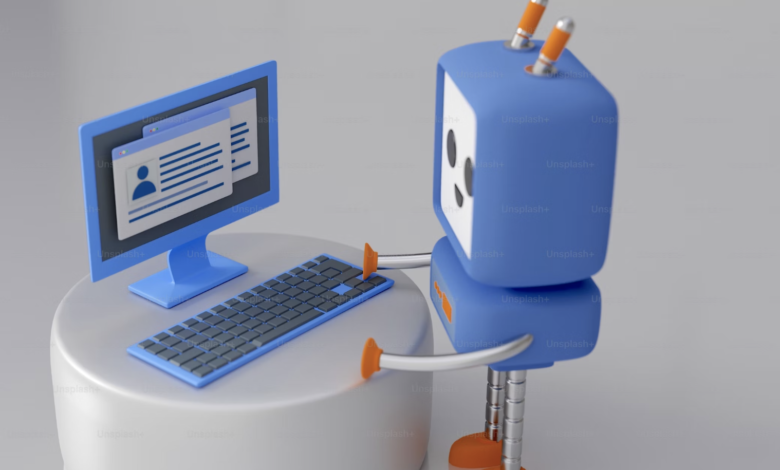
Chatbots are helping companies to engage customers and provide excellent customer service. According to the stats, 58% of B2B companies actively use chatbots while 42% of B2C companies use them. Due to the growing adoption of conversational AI, the chatbot market is expected to reach $15.5 billion by 2028. Many companies often use chatbots to automate interactions and customers would also prefer to communicate with chatbots than wait for human agents. In this article, we’ll discuss how customers feel about bots.
What are AI chatbots and why are companies incorporating them into their customer service?
AI chatbots are software programs that can communicate with humans based on a few prompts. They use machine learning and NLP to understand and provide smart replies. Companies are placing chatbots on their support channels to respond to customers quickly and solve simple queries.
The adoption of AI chatbots is majorly fueled by rising customer service expectations. More customers demand omnichannel and 24/7 support, personalized interactions, immediate responses, and faster resolution times. You can also use AI chatbots to provide self-service for customers.
How do customers feel about AI chatbots based on the research/statistics?
According to popular statistics, AI chatbots are currently being used by 1.4 billion individuals. Retail chatbots help to recommend products and aid customer purchases. 41% of shoppers use conversational AI when shopping online. However, the stats show that B2B companies are more keen on adopting chatbots than B2C companies are.
About 65% of businesses that deploy conversational AI tools are SaaS companies. Many people love chatbot interactions and wish more companies would use them. 68% of customers prefer chatbots because they give fast answers and are quicker to respond than human agents.
Customers like the fact that chatbots can provide support at any time. They also want AI chatbots to connect them to a real person when needed. About 87% of people enjoy using chatbots while 13% feel unsatisfied by it. However, some customers also worry that chatbots might not be able to understand them well or solve complex problems.
Some of the benefits of AI chatbots in customer service
Here are reasons to use AI chatbots in customer service:
- 24/7 support
AI chatbots can respond to customers, provide answers to simple queries, and recommend knowledge-base articles at any time. They also route to available human agents.
- Efficient customer service
They can automate repetitive tasks such as greeting customers, collecting queries, scheduling meetings, and helping customers choose from products and services.
- Personalized interactions
Chatbots can learn from past interactions and collect data on individual support preferences and purchase behaviors. This allows them to customize interactions with every user.
- Highly scalable
Both small and large companies can use AI chatbots to support multiple customers at the same time. They can handle large volumes of queries without any problems.
- Cost efficiency
Online chatbots assist available human agents and help to provide excellent customer service. Companies can simply invest in chatbot software rather than employ more staff.
Some of the limitations associated with chatbots
Below are some problems associated with AI chatbots:
- Prone to errors
Chatbots may fail to understand the user’s intent and give answers that are either irrelevant or inaccurate. So there are moments when customers might get frustrated by it.
- Lack of empathy
These bots can’t exactly understand the inconveniences or struggles that a customer might have. So they may not be able to address some emotions or assure your customers.
- Privacy and security
Chatbot platforms can be vulnerable to hacking or may not be compliant with data protection and privacy laws. You need to ensure that your chatbot is safe and secure for all.
How to choose the right AI chatbot software for your business?
There are some factors to consider when comparing AI chatbot platforms for your business. See them below:
- The setup process
You should choose an AI chatbot software that’s already been trained for customer service purposes. Check if the chatbot is easy to set up or if it requires developer support.
- AI capabilities
It’s necessary to determine how smart or sophisticated your AI chatbots are. Not all platforms use NLP, machine learning, and databases to train. Check for features like Generative AI, sentiment analysis, and context retention.
- App Integration
You should be able to integrate AI chatbots with your CRM software, websites, helpdesk, messaging apps and more. Make sure that you can easily integrate with various apps.
- Data protection
It’s crucial to evaluate privacy policies to ensure that the chatbot platform won’t use or share customer data. Check for security features that prevent unauthorized access.
- Reporting and analytics
You need an analytics dashboard where you can monitor the chatbot’s performance and analyze user interactions. It helps to measure metrics such as customer satisfaction.
Conclusion
Many customers enjoy using chatbots to receive support online. They are available 24/7, respond immediately, give answers to simple queries, and route to available agents. Although there are several benefits of using chatbots, you should note they have some limitations. So they are meant to complement human agents rather than replace them. To achieve the best results, you should choose an AI chatbot software that’s reliable and also offers important features.


